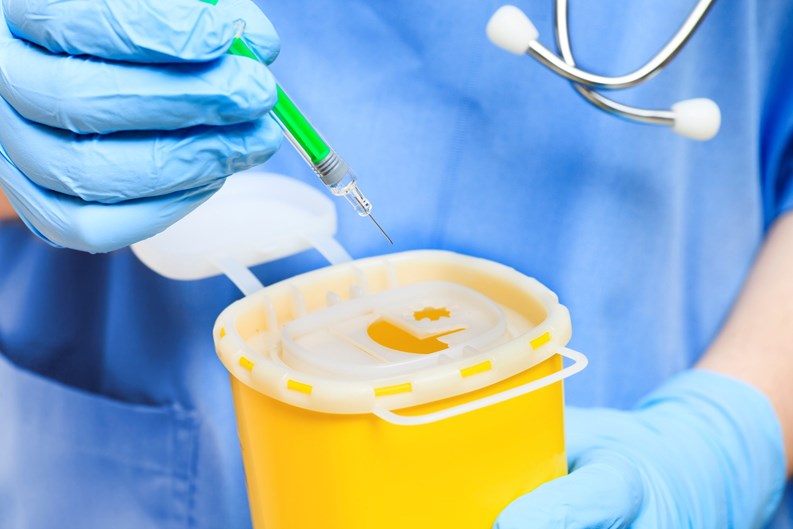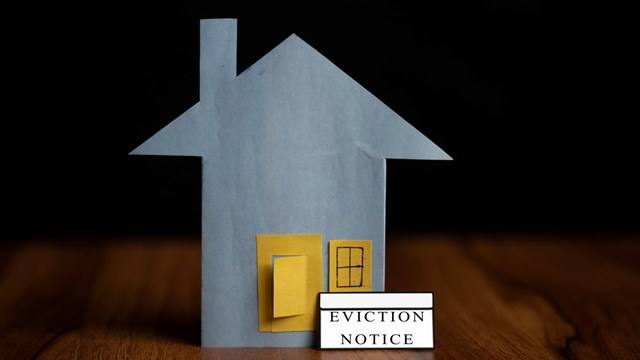Many co-op and condominium buildings consider themselves fortunate to have income-producing commercial tenants on their ground floor. More often than not, these tenants are medical professionals: doctors, dentists, small outpatient treatment clinics, even veterinary offices. With these tenants comes welcome revenue – and fewer of the hassles that often accompany other types of commercial tenants, like noise, traffic, and large amounts of trash.
That said, medical and veterinary practices do come with one notable consideration. It’s known as regulated medical waste (RMW) and it's strictly controlled and monitored by both New York State and New York City. Unlike garbage, which must be sorted by residents and properly disposed of by building staff, medical waste and other hazardous waste items must be removed by competent, licensed professionals.
What Is RMW?
According to the web page of the New York State Department of Environmental Conservation, regulated medical waste is defined as “material generated in the research, production and testing of biologicals or health care, such as infectious animal waste, human pathological waste, human blood and blood products, needles and syringes (also known as sharps), cultures and stocks (microbiological materials), and other infectious waste, e.g. materials contaminated with infectious agents such as the Hemorrhagic Fever viruses.” Certain chemicals used in chemotherapy and other procedures (referred to as hazardous waste) must also be disposed of with special handling.
How Is RMW Disposed Of?
According to Sean Fredricks, President of Red Bags, a company with locations in New York and New Jersey that provides disposal services for both RMW and other hazardous materials: “RMW must be disposed of by a licensed medical waste disposal company.” Fredricks also mentions that there are two distinct licenses for RMW and other hazardous waste products. He recommends that when seeking a disposal company, find one that carries both licenses.
Fredricks explains that doctors' offices in residential buildings are subject to the same stringent rules and regulations as other locations that produce medical waste, such as hospitals and nursing homes. “They must employ a waste removal company that is certified by the Department of Environmental Conservation (DEC). In a co-op or a condo, the company would be obligated to provide proof of insurance to the management company for the corporation or association.”
The waste disposal company may also provide training for the staff at doctors' offices and medical facilities to teach proper RMW collection and packaging, along with how to prepare other hazardous materials for disposal. This training is also required by state law, and the disposal company signs off on the training for the State of New York.
Methods
RMW disposal methods are primarily concerned with eliminating the risk of exposure to potentially dangerous, contaminated items. Items known as non-sharps – such as blood-soiled gauze, used protective coverings, gloves, masks, etc. – must be removed every 24 hours. Sharps – including needles or syringes – must be safely placed in special plastic containers that must be removed when the container is full, or within 90 days, whichever comes first. Everything must be well packed and properly labeled.
It should be noted that rules applying to medical offices do not apply to residents of apartments in co-ops, condos, or rentals. If a resident is diabetic, for instance, they do not have to arrange for disposal of their sharps. They are, however, encouraged to follow safety rules, place sharps in specially designed disposal containers, and bring them to locations – a nearby hospital, for example – where they can be accepted for eventual disposal.
Overall, co-op and condo boards with medical facilities on their premises should keep in mind that the while the disposal of RMW is the responsibility of the medical tenant, they and their management should make sure the medical tenant has proper, reliable disposal. Fredricks recommends the following: “Make sure the disposal company is involved from the beginning of the tenant’s tenure, and that a full assessment is done of the space. There should be designated areas for storage of waste with bio-hazard labeling on the door leading to the storage area. All personal should be properly trained, and familiar with all local statues and laws concerning medical waste.” If properly handled and disposed of, RMW is nothing to be frightened of or concerned about.
AJ Sidransky is a staff writer at The Cooperator, and a published novelist.







Leave a Comment